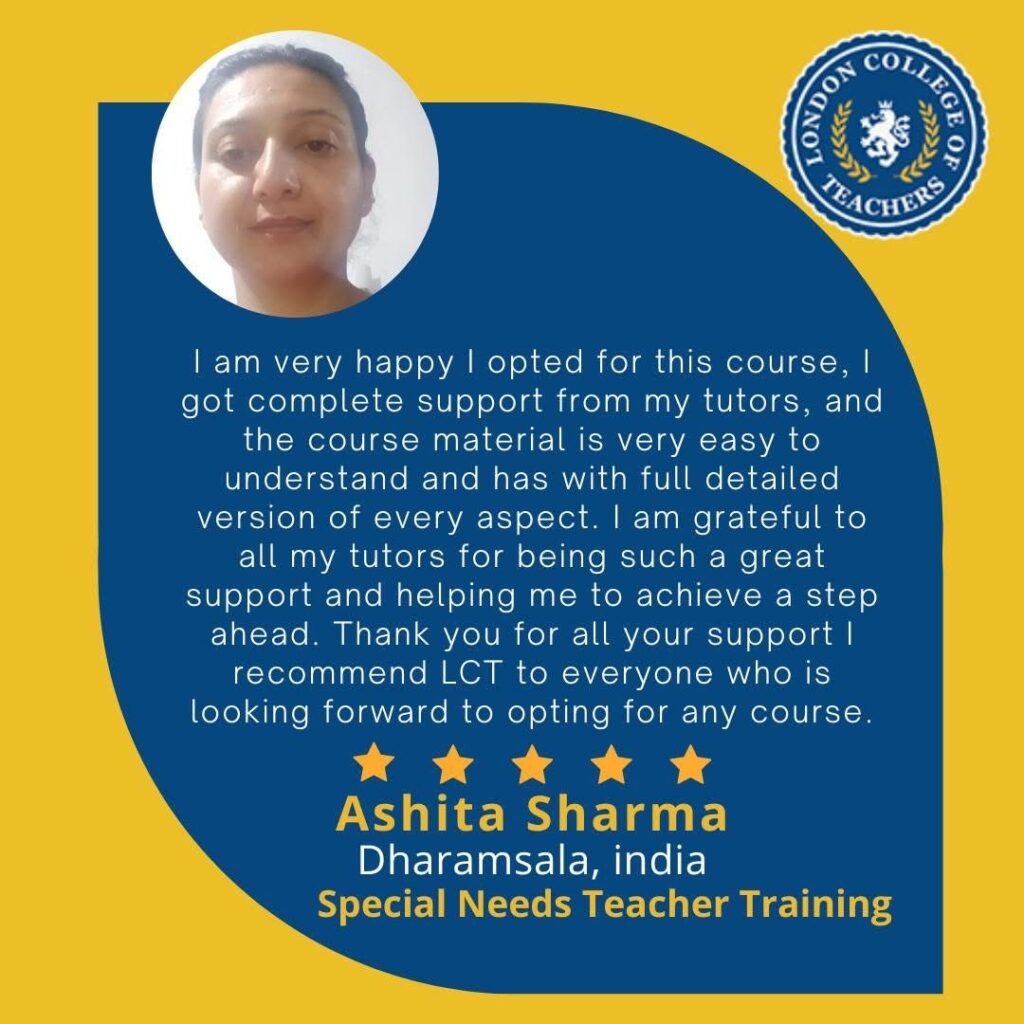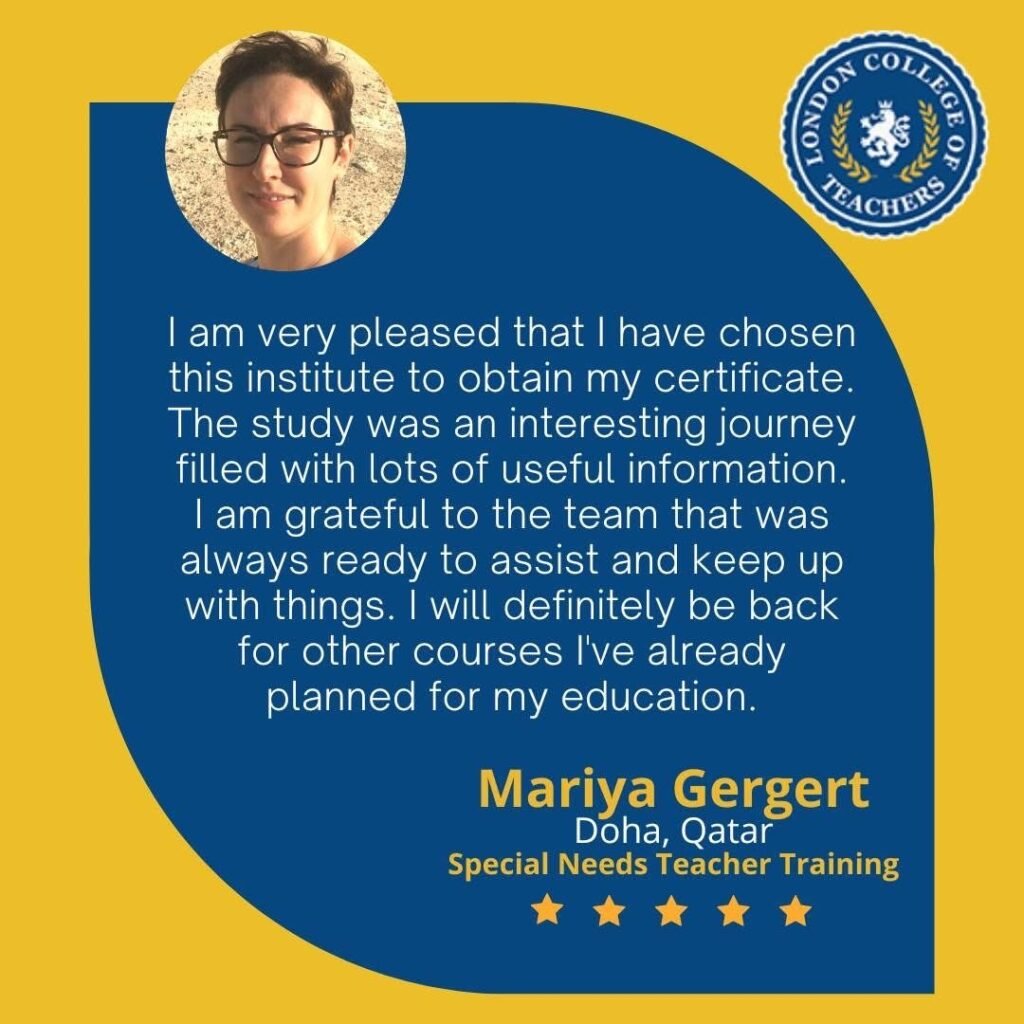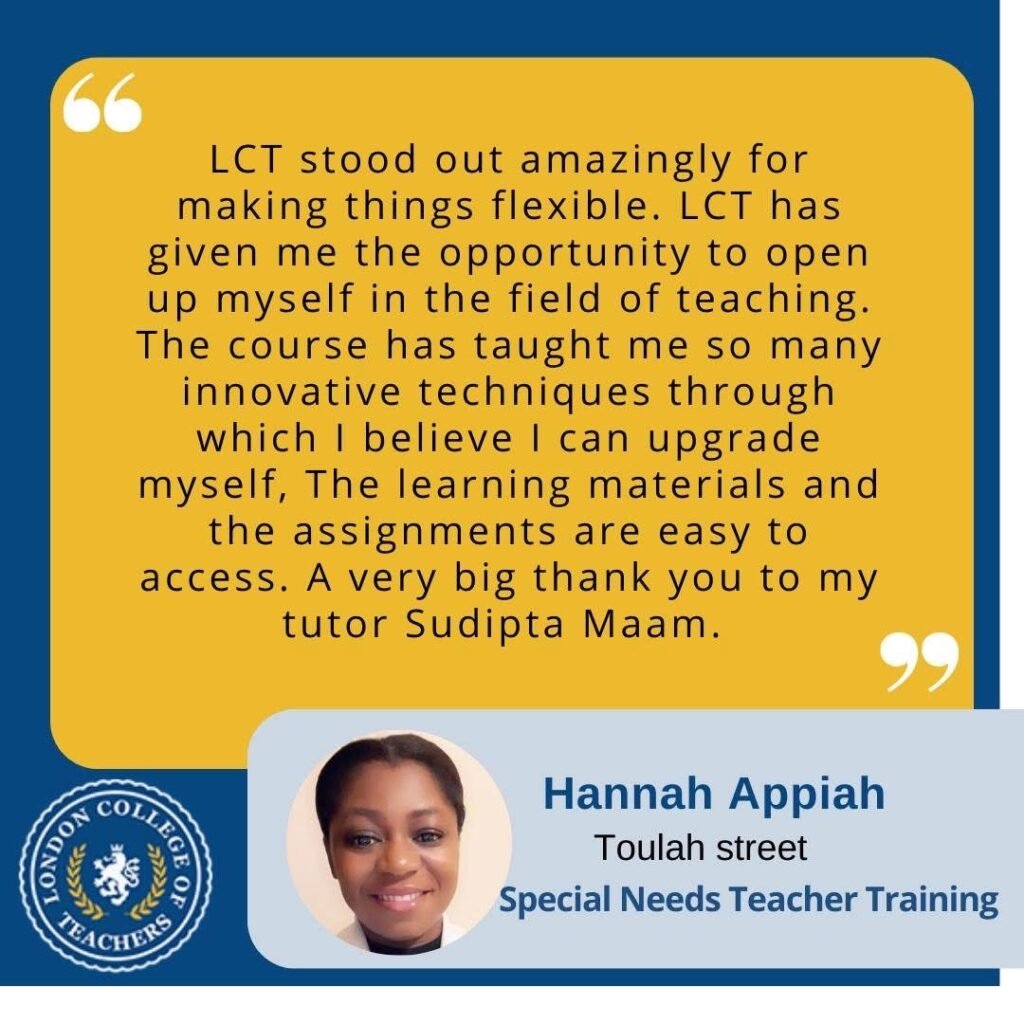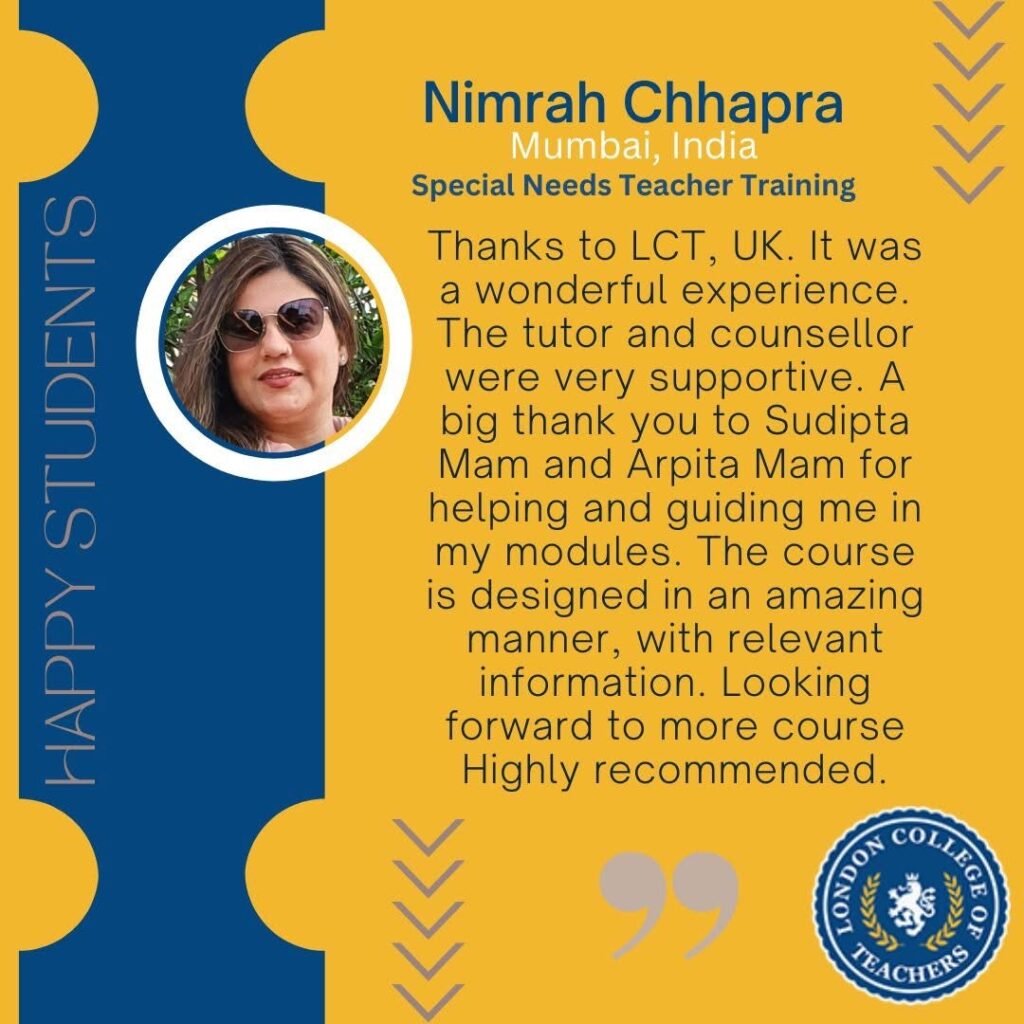Top 5 Skills You Gain from a Special Needs Education Program
Introduction
To teach kids with different learning requirements, you need to know a lot, be patient, and be able to understand them. Teachers who take special education courses learn how to make classrooms where every child feels supported and appreciated. Educators learn important skills that not only improve their teaching but also change the lives of their students for the better by taking these courses. This blog post talks about the important skills you may anticipate to learn in special needs education training.
Table of Contents
- Why Teachers Choose Special Education Training
- Understanding the Needs of Children
- Designing Effective Learning Approaches
- Building Communication and Collaboration Skills
- Developing Empathy and Patience
- Importance of Special Needs Education Programs
- Global Career Opportunities in Special Education
- FAQs
- Conclusion
Why Teachers Choose Special Education Training?
Teachers select special education training to become more effective in inclusive classrooms. They study how to help kids who have trouble learning, behaving, or growing up in special needs education classes. The training gives you both practical skills and a thorough grasp of the ideas that make inclusive education possible, which boosts your confidence.

Understanding the Needs of Children
Child psychology is a significant aspect of special education. Teachers learn how kids with varied capacities see the world and how they learn. By knowing these needs, teachers can change how they teach to make the classroom a place where everyone can grow and learn at every stage.

Designing Effective Learning Approaches
One of the most important skills you learn is how to make lesson plans that are unique to each student and may change as needed. Teachers are taught how to make plans that work for each child’s learning style. Teachers use these methods to make sure that kids feel motivated, independent, and able to make progress in their studies.

Building Communication and Collaboration Skills
To be a good special education teacher, you need to be able to talk to kids, parents, and other teachers well. Teachers learn how to talk to kids in a way that is straightforward, clear, and successful for kids with different needs. A program to prepare teachers of students with special needs also stresses working with families and specialists to build a network of support for students.
Developing Empathy and Patience
Teachers may learn the most important skills of empathy and patience. When you work with kids who need extra help, you need to understand their problems, celebrate their modest wins, and always support them. These traits help make a safe and caring place where kids feel valued and involved.

Importance of Special Needs Education Programs
Completing a structured program provides awareness and competence in handling different challenges. With proper training, educators are equipped to create balanced classrooms where children thrive academically, socially, and emotionally. A career built on these principles is deeply rewarding and continues to be in high demand across the globe.
Global Career Opportunities in Special Education
There is a growing need for skilled teachers in special education all around the world. Teachers can look into jobs in schools, therapy centers, inclusive education programs, and NGOs around the world by taking special education courses. Many educational systems that encourage inclusive learning appreciate the skills learned.
FAQs
Q1: Who should enroll in special education programs?
These courses are suitable for both new and experienced teachers who want to support children with learning or developmental challenges.
Q2: Can I take these programs online?
Yes, many institutions offer flexible online formats for special needs education courses, making them accessible for working professionals.
Q3: What is the benefit of certification?
A special education needs teacher training certificate validates your expertise and increases your opportunities in schools and organizations globally.
Q4: Are these courses only for teachers?
No. Parents, caregivers, and professionals in child-focused careers can also benefit from the skills these courses provide.
Q5: How do these skills help in the classroom?
They improve lesson planning, communication, classroom management, and emotional support, creating inclusive spaces where all children succeed.
Conclusion
Taking special education classes helps instructors learn important skills including empathy, communication, child psychology, and how to run a classroom well. These skills assist make classrooms where every child feels important and able to learn. With the correct training, teachers can make a real difference by making sure that kids with special needs get the help, support, and education they need.


